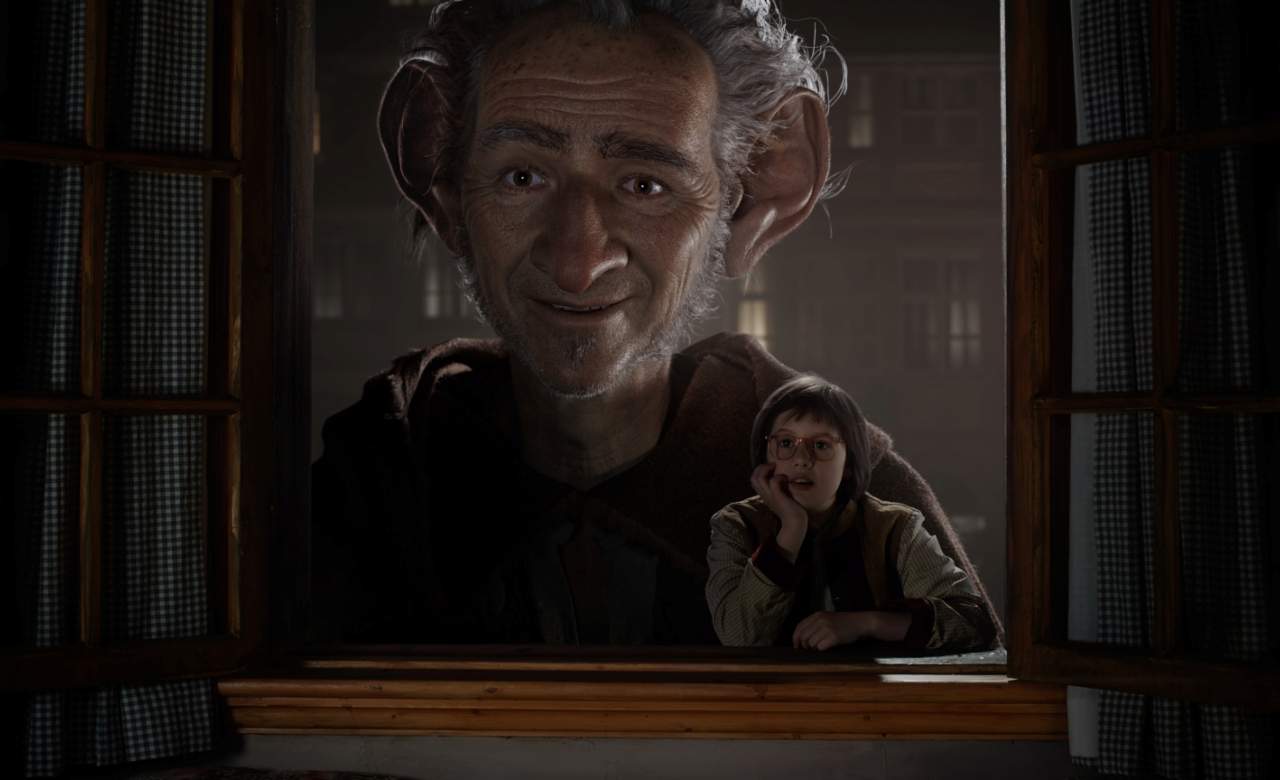The BFG
The BFG may be big and whimsical, but it never fully captures the genuine touch of its source material.
Overview
If you saw a giant on the street, you'd stare in wonder. Your jaw would drop, your eyes would pop, and you would marvel at the sight in front of you. Once the shock wore off, you'd also be more than a little bit scared. But, if the lumbering creature in front of you actually turned out to be rather nice, you'd probably want to be his friend. In fact, if he was so harmless that he was being bullied by his fellow behemoths, you'd want to help him.
That's how orphan Sophie (Ruby Barnhill) reacts when she meets the individual she comes to call the Big Friendly Giant (Mark Rylance). Roald Dahl's 1982 novel The BFG told this tale, and now so does Steven Spielberg's years-in-the-making film. Given that one penned books that have brightened childhoods for decades, and the other has made movies that achieved the same feat, bringing the two together seems like a perfect fit. Add E.T. screenwriter Melissa Mathison to the mix, and The BFG should be primed to capture hearts and minds alike.
Indeed, as the film revels in its state of dream-like awe — and explores the awe-inspiring dreams the titular giant disseminates to the sleeping masses — there's plenty of affection on display. And as it contrasts the friendly antics of the BFG with his cruel, carnivorous comrades with names like Fleshlumpeater (Jemaine Clement) and Bloodbottler (Bill Hader), it offers a sweet reminder that seemingly frightening figures can also be outsiders with their own problems. You don't run to the queen (Penelope Wilton) and her offsiders (Rebecca Hall and Rafe Spall) for assistance if you're not in a hefty spot of bother, after all.
Alas, amidst the leisurely life lessons about identity and acceptance, gibberish-infused dialogue and more than a handful of fart jokes, there's also an air of calculation. The BFG thinks, dreams and renders everything it can in the biggest possible manner — but, more than doing the source material justice, the CGI-heavy effort also wants to stress its size. There's a difference between employing specific camera angles to ensure that audiences know they're supposed to be wowed, and actually causing that reaction. There's also a difference between contemplating vast emotions and genuinely inspiring warm, fuzzy feelings.
Accordingly, while it provides servings of fantastical spectacle and heightened sentiments, The BFG strives a little too hard to capture the usual Dahl and Spielberg magic. Thank goodness, then, for Rylance, who anchors the entire feature with an endearing motion-captured lead performance. After winning an Oscar for his turn in Bridge of Spies, he's the best thing about a Spielberg movie for the second time in a row. Though young Barnhill proves more precocious than poignant, their shared scenes — and the gentle kindness that radiates from Rylance every time he's on screen — are worth the price of admission alone.





